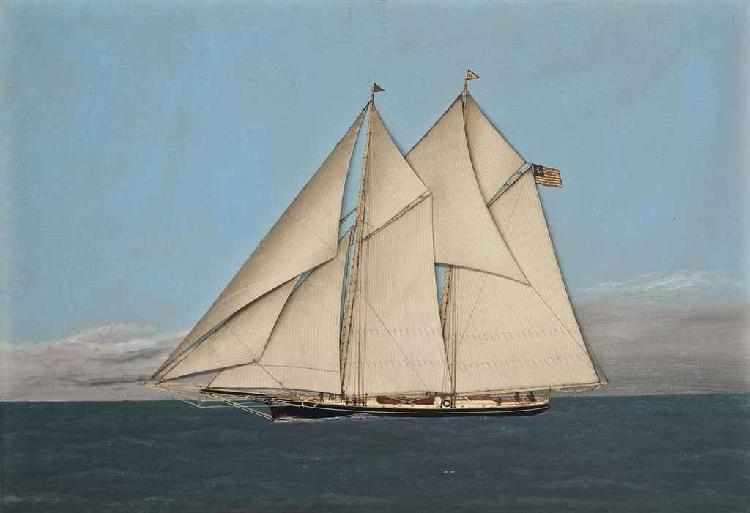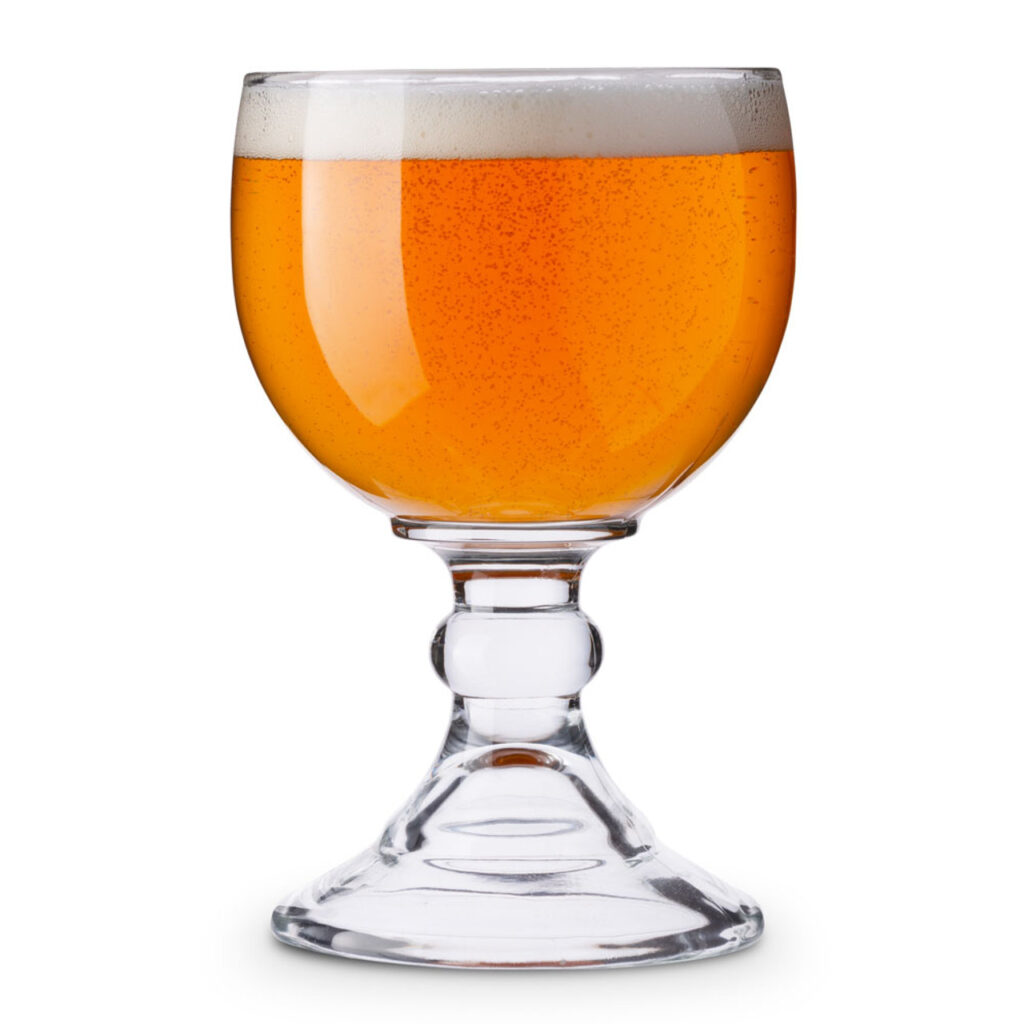
A “schooner” is both a kind of ship and a kind of beer glass. Nobody really seems to know which came first. For that matter, nobody really seems sure where the word came from in the first place.

Mysterious origins aside, serving beer in “schooners” has a fairly complicated history in England. It seems there was an act of Parliament back in 1698 that made it illegal to serve beer in any size container except pints, half-pints, and thirds of a pint. Schooners seem to be about two-thirds of a pint, at least as reported by the North British Daily Mail on March 7, 1896: “Of these [local measures] “the schooner” containing 14 fluid ounces, or 2 4-5ths imperial gills, occupied perhaps the most prominent place … being found in everyday use, under various names, in London, Glasgow, Aberdeen, and elsewhere.” I’m not sure what an “imperial gill” is or was, but 14 fluid ounces is about two-thirds of a pint.
The version of a schooner that’s a ship might come from Glouster, Massachusetts in 1713. As the story goes, the first (or one of the first) ships of that type was being launched, and Andrew Robinson, the builder and captain, heard somebody in the crowd remark “Oh, how she scoons.” To that he supposedly replied “A scooner let her be.”
There is a minor problem with the story, though. There’s no good evidence that “scoon” was actually a word in 18th-Century Massachusetts, so why anybody would make that remark? How would Captain Robinson know what they were talking about? Those details are somewhat unresolved.
On the other hand, there was a Scottish word “scon”, and its meaning might even apply; to “scon” meant (in Scotland) to skip a flat stone over the water. The new kind of ship was designed to sail much faster than previous types, so it’s conceivable that the Scottish term did make its way to New England.
The next hurdle for “schooner” was to evolve from “scooner” to its current spelling. This is also a bit mysterious. The most likely explanation has to do with the Dutch. In the late 1700s it wasn’t the English, but the Dutch who dominated the seven seas, and along with that, as usual, came the requisite hangers on, fanboys, and imitators. “Schooner” looks much more like an adapted Dutch word, so evidently that spelling took over simply because if it was sea-going, it was assumed to be Dutch.
Dutch, too, had a word for a schooner-style ship. It was called a “schoener.” But before you drink to a mystery finally solved, you should know one more detail. Dutch borrowed the word from English.
